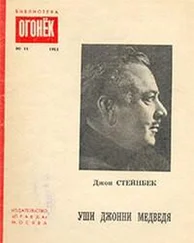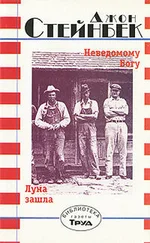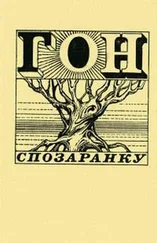Джон Стейнбек - Cup of Gold [Золотая чаша]
Здесь есть возможность читать онлайн «Джон Стейнбек - Cup of Gold [Золотая чаша]» — ознакомительный отрывок электронной книги совершенно бесплатно, а после прочтения отрывка купить полную версию. В некоторых случаях можно слушать аудио, скачать через торрент в формате fb2 и присутствует краткое содержание. Год выпуска: 1929, Жанр: Прочие приключения, на английском языке. Описание произведения, (предисловие) а так же отзывы посетителей доступны на портале библиотеки ЛибКат.
- Название:Cup of Gold [Золотая чаша]
- Автор:
- Жанр:
- Год:1929
- ISBN:нет данных
- Рейтинг книги:5 / 5. Голосов: 1
-
Избранное:Добавить в избранное
- Отзывы:
-
Ваша оценка:
- 100
- 1
- 2
- 3
- 4
- 5
Cup of Gold [Золотая чаша]: краткое содержание, описание и аннотация
Предлагаем к чтению аннотацию, описание, краткое содержание или предисловие (зависит от того, что написал сам автор книги «Cup of Gold [Золотая чаша]»). Если вы не нашли необходимую информацию о книге — напишите в комментариях, мы постараемся отыскать её.
Cup of Gold [Золотая чаша] — читать онлайн ознакомительный отрывок
Ниже представлен текст книги, разбитый по страницам. Система сохранения места последней прочитанной страницы, позволяет с удобством читать онлайн бесплатно книгу «Cup of Gold [Золотая чаша]», без необходимости каждый раз заново искать на чём Вы остановились. Поставьте закладку, и сможете в любой момент перейти на страницу, на которой закончили чтение.
Интервал:
Закладка:
"It is good," she said. "It is comforting to know one's value to a real. Have you any idea of your worth, Captain?"
Henry Morgan said, "If I were ever captured and a ransom demanded for me, I would not be worth a copper penny. These dogs of mine would laugh and shrug. A new captain would raise to lead them, and I-well, I would be subject to the pleasure of my captors, and I think I could foretell their pleasure. You see, I have been at revaluing myself in the last few days. I may have some value to historians because I have destroyed a few things. The builder of your Cathedral is forgotten even now, but I, who burned it, may be remembered for a hundred years or so. And that may mean something or other about mankind."
"But what is there about me that is worth all this gold?" she insisted. "Is it my arms, do you suppose?
My hair? Or is it that I am the embodiment of my husband's vanity?"
"I do not know," said Henry. "With the revaluation of myself, the whole economic system of emotions and persons has changed. Today, were I to demand a ransom, perhaps you would not be flattered."
"Do you so hate me, Captain Morgan?"
"No, I do not hate you; but you are one of the stars of my firmament which has proven to be a meteor."
"That is not gallant, sir. That is quite different from your speech of a few days past," she observed spitefully.
"No. It is not gallant. I think that hereafter I shall be gallant for two reasons only-money and advancement. I tried to be gallant for the pure, joyous looks of things. You see, I was honest with myself before and I am honest with myself now. These two honesties are antithetical."
"You are bitter."
"No; I am not even bitter. The food that bitterness feeds on is gone out of me."
"I am going now," she said softly and wistfully. "Have you nothing more to say to me about myself?
Nothing more to ask of me?"
"Nothing," he answered, and immediately went to piling the coins again.
The messenger entered from the street. He had drunk deeply, for the removed burden of his mission had made him joyous. He bowed to Ysobel and to Henry Morgan; bowed warily, with an eye to his balance.
"We must go, Seсor," he announced loudly. "The way is long." He led Ysobel to the white mare and helped her into the saddle. Then, at his signal, the column moved off down the street. Ysobel looked back once as they started, and it seemed that she had taken a mood from Henry Morgan, for there was a puzzled smile on her lips. But then she bent her head over the mare's neck; she was intently studying the mare's white mane.
The messenger had remained standing at Henry's side in the doorway. Together they watched the fluid line of riders swing away while the sunlight glinted on the soldiers' armor. In the center of the troupe, the white mare seemed a pearl in a setting of silver.
The messenger put his hand on Henry's shoulder.
"We know how to understand each other, we men of responsibilities," he said drunkenly. "It is not as though we were children to have secrets. We are men, brave men and strong. We may confide in each other. You may tell me the thing nearest your heart if you wish, Seсor."
Henry shook the hand from his shoulder. "I have nothing to tell you," he said brusquely.
"Ah; but then I will tell you something. Perhaps you wondered why the husband of this woman was willing to pay such a vast sum for her. She is only a woman, you say. There are many women to be had more cheaply-some for a real or two. Her husband is a fool, you say. But I would not have you think that of my master. He is no fool. I will tell you how it is. Her grandfather still lives, and he is the owner of ten silver mines and fifty leagues of fertile land in Peru. Doсa Ysobel is the heiress. Now if she were killed or carried off-But you understand, Seсor-Poof! The fortune into the King's arms!" He laughed at the cleverness of his reasoning. "We understand each other, Seсor. We have tough skulls-not the soft heads of chickens. Twenty thousand-it is nothing to be reckoned against ten silver mines. Ah, yes; we understand each other, we men of responsibilities."
He clambered into his saddle and rode away still laughing.
Henry Morgan saw him join the undulating cavalcade; and now there was a ruby with the pearl in the silver setting.
Captain Morgan went back to the treasure. He sat on the floor and took the coins into his hands. "The most human of all human traits is inconsistency," he thought. "it is a shock to learn this thing, almost as great a shock to a man as the realization of his humanity. And why must we learn that last? In all the mad incongruity, the turgid stultiloquy of life, I felt, at least, securely anchored to myself. Whatever the vacillations of other people, I thought myself terrifically constant. But now, here I am, dragging a frayed line, and my anchor gone. I do not know whether the rope was cut or merely worn away, but my anchor is gone. And I am sailing around and around an island in which there is no iron." He let the gold pieces slip through his fingers. "But perhaps here is my iron for the making of a new anchor," he thought. "This is hard and heavy. Its value may fluctuate somewhat in the economic currents, but at least it has a purpose, and only one purpose. It is an absolute assurance of security. Yes, perhaps this is the one true anchor; the one thing a man may be utterly sure of. Its claws hook tightly to comfort and security. Strangely, I have a craving for them both."
"But other men have a share in this gold," part of his brain argued.
"No, my dear conscience; we have an end of acting now. I have put on new glasses; rather they have been locked about my head, and I must order my life in accordance with the world I see through these new lenses. I see that honesty-public honesty-may be a ladder to a higher, more valuable crime; veracity a means to more subtle dissimulation.
No; these men have no rights they can enforce. These men were too free with the rights of others to deserve consideration." He stumbled happily on the thought. "They steal, and so shall their plunder be stolen.
"But I said I was finished with evasions and conscience drugging. What have I to do with right, now-or reason, or logic, or conscience? I want this money. I want security and comfort, and I have the power between my hands to take both. It may not be the ideal of youth, but I think it has been the world's practice from the beginning. Luckily, perhaps, the world is not operated by youth. And besides," he said, "these fools of men do not deserve any of it. They would be throwing it away in the brothels when we came home again."
The buccaneers went out of ruined Panama. They carried all of the treasure with them across the isthmus on the backs of mules. When at last Chagres was reached, they were exhausted; nevertheless, the following day was set for the division of spoils. In order that this might be facilitated, the whole of the treasure was stored in one ship, the great galleon which had been commanded by a Duke before the pirates captured it. From this center the plunder was to be divided. Captain Morgan was in good spirits.
The journey was over, he told the men, and it was time for pleasure. He rolled out forty kegs of rum onto the beach.
Early in the morning, a sleepy pirate opened his red eyes and looked toward the sea. He saw the water where the galleon had been. He called his comrades, and in a moment the shore was lined with disappointed men who wistfully searched the horizon. The galleon had put to sea during the night, and all the wealth of Panama had gone with her.
There was rage among the buccaneers. They would give chase; they would run down the fugitive and torture Captain Morgan. But they could not pursue. The other ships were worthless. Some lay on the sandy bottom with great holes punched in their sides; of others, the masts were sawed nearly through.
Читать дальшеИнтервал:
Закладка:
Похожие книги на «Cup of Gold [Золотая чаша]»
Представляем Вашему вниманию похожие книги на «Cup of Gold [Золотая чаша]» списком для выбора. Мы отобрали схожую по названию и смыслу литературу в надежде предоставить читателям больше вариантов отыскать новые, интересные, ещё непрочитанные произведения.
Обсуждение, отзывы о книге «Cup of Gold [Золотая чаша]» и просто собственные мнения читателей. Оставьте ваши комментарии, напишите, что Вы думаете о произведении, его смысле или главных героях. Укажите что конкретно понравилось, а что нет, и почему Вы так считаете.
![Джон Стейнбек Cup of Gold [Золотая чаша] обложка книги](/books/181372/dzhon-stejnbek-cup-of-gold-zolotaya-chasha-cover.webp)





